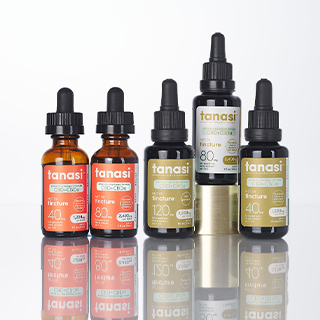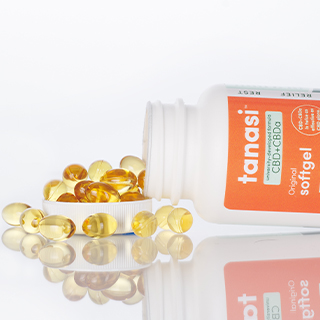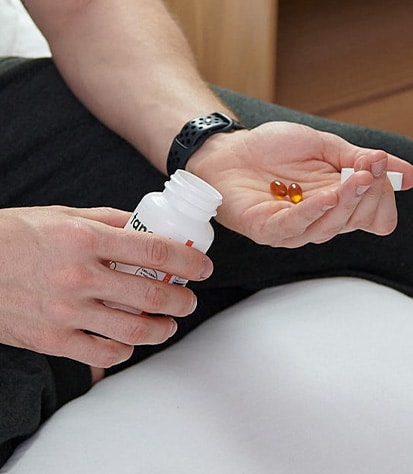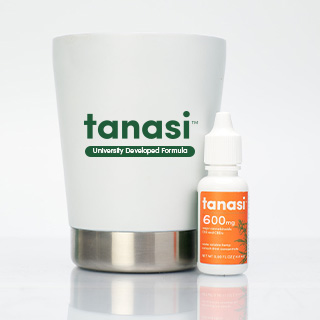CBD and Blood Thinners: Is CBD a Blood Thinner?
Posted on July 15th, 2022
People study Cannabidiol, or CBD, extensively for its potential health benefits and medical uses. Already, we know it may possess skincare, pain relief, and stress relief benefits. And if you have difficulties sleeping, many people rest better with CBD.
While we can’t conclusively prove all of CBD’s benefits, we do know that it’s a safe, non-psychoactive way to approach several conditions. Still, CBD does have potentially concerning effects because of how it interacts with various systems in your body. Particularly, medical experts worry about its blood-thinning capabilities. While multiple studies suggest CBD may contribute to blood thinning, the big question remains: Is CBD a blood thinner?
What Are Blood Thinners?
Blood thinners are medications that prevent forming blood clots. (You can take them orally or intravenously.) Clots can block blood flow to your heart, brain, and lungs. And, while blood clotting is a vital process in your body, it can also trigger dangerous complications.
Different blood thinners work differently; some thin the blood by preventing blood cells from sticking together in your blood vessels. However, most blood thinners are antiplatelets and anticoagulants, meaning that they work by increasing the time it takes for blood clots to form. Some common anticoagulant blood thinners are Warfarin, Heparin, and Enoxaparin.
 How Do Blood Thinners Work?
How Do Blood Thinners Work?
Different enzyme systems metabolize different medications in your body. Specifically, most medications are metabolized by the cytochrome P-450 system, commonly known as the CYP450 system. You find this system within your liver; it metabolizes and processes most medications. This system contains approximately 50 distinct enzymes that address your blood’s workings. The CYP450 system is essential when it comes to drug prescription and establishing the right dosages.
Anticoagulant Effects of CBD
Full-spectrum CBD products such as CBD oil contain a range of cannabinoids and terpenes but have a THC concentration of 0.3% or less. As such, these products contain traces of CBN and THC alongside CBD. In-vitro tests conducted to establish the effect of a cannabis extract on thrombin (enzyme in the blood that causes clotting) activity gave an IC50 value of ~9 mg/ml compared to ~2 mg/ml for THC. This means that CBD has a greater effect on your body’s clotting system than THC does.
In a separate study, researchers used a cannabis extract to treat obese and lean lab rats. Results indicated that half of the clotting times recorded were two times greater than the control groups (rats that were not treated with the cannabis extract). These studies indicated that the cannabinoids CBD, THC, and CBN have an anticoagulant effect.
Other studies have also indicated that CBD oil affects anticoagulants and platelets by inhibiting their production, thereby increasing blood clotting times.
CBD and Blood Thinners
Studies suggest an interaction between CBD and Warfarin, the most common anticoagulant on the market. The CYP450 system largely metabolizes Warfarin, and CBD appears to inhibit enzymes belonging to this class. This is because it competes as a substrate for the CYP450 system, which may inhibit the system’s activity.
Specifically, CBD may act as a potent competitive inhibitor for all the enzymes in the CYP450 system, which may cause Warfarin to stay in your bloodstream for too long since its breakdown is impaired. As such, taking CBD may increase Warfarin plasma concentration in your body, as well as the INR (time taken for your blood to clot). This could potentially cause bleeding complications.
Is It Safe to Use CBD and Blood Thinners Together?
Blood thinners are a common prescription for people with various medical conditions. And many people turn to CBD oil for relief of some symptoms from chronic medical conditions. While individuals may take these two substances for different reasons, you must be extremely cautious, since not all blood interacts positively with CBD.
Now, we aren’t telling you to throw away your CBD if you are taking blood thinners: instead, you must consult your doctor if you wish to use CBD products.
Many anticoagulants can cause prolonged bleeding, unusual bruising, and gum bleeding. But certain medications such as Dabigatran, Edoxaban, and Heparin have no known interaction with CBD. Still, the effects of combining these medications and CBD is still unclear. Seeking your doctor’s advice before using CBD and blood thinners together, therefore, may prevent any unexpected side effects.
CBD and Blood Thinners
Essentially, CBD can have an additive or synergistic effect with blood thinners. “Additive” would mean that the resultant effect of using the substances together is the combined power of their individual effects. On the other hand, “synergistic” would mean that using the substances together would have a greater effect than the sum of their individual effects. That means that CBD could effectively increase the potency of your prescribed blood thinner, which could be dangerous.
You may ask why it is important to consult your doctor before using an anticoagulant together with CBD. Prescribed medications are absorbed differently by your body and may respond differently when combined with other substances, such as CBD. Your doctor will help you create a viable plan of using the two together, most likely by adjusting your daily intake of CBD. But keep in mind that your doctor may also tell you to avoid CBD entirely. And you should follow all professional medical advice when it comes to your CBD regimen.
 Is It Possible to Safely Use CBD and Blood Thinners?
Is It Possible to Safely Use CBD and Blood Thinners?
Provided an anticoagulant isn’t metabolized by your CYP450 system (which also metabolizes CBD), there is a possibility that it can be used together with CBD without causing undesirable effects such as prolonged bleeding. Potentially acceptable anticoagulants include Apixaban and Rivaroxaban.
Dabigatran is another oral anticoagulant that isn’t metabolized through the CYP450 system. What’s more, this blood thinner is one of the few identified with no drug-drug or drug-food interactions. It can be considered a viable substitute for Warfarin. Nevertheless, you should always consult a health practitioner before using any anticoagulant alongside CBD, even a Warfarin substitute.
Now, even if your doctor clears CBD use with blood thinners, the safest approach is to start with a lower than recommended dose for your particular CBD product. If medically permitted, you can increase the dosage gradually, with time, if necessary to achieve your desired effects. Factors such as weight, health, and general tolerance to medication are all variables to consider if you wish to add CBD to your medication regimen.
What Is the Best Way to Take CBD When Using Blood Thinners?
CBD products can be taken in several ways. CBD oil can be taken through sublingual administration (placing under the tongue), vaping, or capsules. Your doctor will help you evaluate the various forms of CBD administration and establish one that is likely to cause the least effect when combined with blood thinners.
Are There Any Side Effects When Using CBD and Blood Thinners?
Depending on your prescribed blood thinner, you may experience various side effects after CBD use. For blood thinners whose interaction with CBD is known (such as Warfarin), undesirable side effects are more likely to occur. Some of these include:
- Prolonged bleeding, including nosebleed, heavy menstrual bleeding, and even internal hemorrhage
- Brown or red urine
- Unusual and frequent bruising
- Black or bloody stool
- Chronic stomach pain
- Headache
- Vomiting blood
- Unusual tiredness, weakness, or dizziness
- Joint pain and discomfort, especially if you’re injured
These side effects are serious and require immediate medical attention.
Other mild or less serious side effects including:
- Diarrhea and loss of appetite
- Fever
Can You Use CBD in Place of Conventional Blood Thinners?
Currently, studies only suggest that CBD may replace anticoagulants such as Warfarin. As such, we can’t say that CBD is a medically-sanctioned blood thinner. Now, rat studies indicate CBD’s possible anticoagulant effects. But these studies only validate the anticoagulant activity of cannabinoids, such as cannabinol (CBN) and tetrahydrocannabinol (THC).
Takeaway
Given the limited studies on its anticoagulant activity, CBD cannot be termed as a blood thinner. As such, you should consult a medical practitioner before considering CBD as a possible replacement for any blood-thinning drug. You must also be aware of the possible side effects that may arise from adding CBD to your medication routine. While it may still be beneficial to use CBD products alongside blood thinners, only your doctor can determine the safety of this plan. And, even if you’re allowed to add CBD to your routine, you must consider your health, weight, and the dosage of the CBD product to be used before starting a new routine.

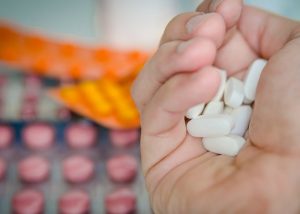 How Do Blood Thinners Work?
How Do Blood Thinners Work?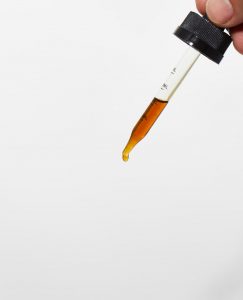 Is It Possible to Safely Use CBD and Blood Thinners?
Is It Possible to Safely Use CBD and Blood Thinners?